5-(三甲基硅基)-1,2,3,4,5-五甲基-1,3-环戊二烯, ≥98%,5-(Trimethylsilyl)-1,2,3,4,5-pentamethyl-1,3-cyclopentadiene
产品编号:西域试剂-WR137180| CAS NO:87778-95-8| MDL NO:MFCD00151193| 分子式:C13H24Si| 分子量:208.42
本网站销售的所有产品仅用于工业应用或者科学研究等非医疗目的,不可用于人类或动物的临床诊断或者治疗,非药用,非食用,
| 英文名称 | 5-(Trimethylsilyl)-1,2,3,4,5-pentamethyl-1,3-cyclopentadiene |
|---|---|
| CAS编号 | 87778-95-8 |
| 产品沸点 | 232.3±9.0 °C at 760 mmHg |
| 产品密度 | 0.8±0.1 g/cm3 |
| 产品闪点 | 79.8±12.3 °C |
| 精确质量 | 208.164734 |
| LogP | 6.20 |
| 外观性状 | 透明黄色液体 |
| 蒸气压 | 0.1±0.4 mmHg at 25°C |
| 折射率 | 1.462 |
| 稳定性 | 按规定使用和贮存的不会分解,避氧化物、热、明火 |
| 储存条件 | 干燥、阴凉、密闭处、惰性气体的环境中 |
相关文档
化学品安全说明书(MSDS)
下载MSDS质检证书(COA)
相关产品
| 安全声明 (欧洲) | S24/25 |
|---|---|
| WGK德国 | 3 |
| 海关编码 | 2931900090 |
|
Section 1: Product Identification Chemical Name:Trimethylsilyl pentamethylcyclopentadiene CAS Registry Number:87778-95-8 Formula:[C5(CH3)5]Si(CH3)3 EINECS Number:none Chemical Family:organosilicon compounds Synonym:Cyclopentadienyltrimethylsilane
Section 2: Composition and Information on Ingredients IngredientCAS NumberPercentACGIH (TWA)OSHA (PEL) Title Compound87778-95-8100%no datano data Section 3: Hazards Identification Emergency Overview:May be irritating to skin, eyes, and respiratory tract. Primary Routes of Exposure:Inhalation, skin, eyes. Eye Contact:May cause moderate irritation of the eyes. Skin Contact:May cause slight to mild irritation of the skin. Inhalation:May cause irritation to the nose, mucous membranes and respiratory tract. Ingestion:Ingestion may result in the release of a large amount of acetylene gas. Acute Health Affects:May be irritating to skin, eyes, and respiratory tract. Chronic Health Affects:No information available on long-term chronic effects. NTP:No IARC:No OSHA:No SECTION 4: First Aid Measures Immediately flush the eyes with copious amounts of water for at least 10-15 minutes. A victim may need Eye Exposure: assistance in keeping their eye lids open. Get immediate medical attention. Wash the affected area with water. Remove contaminated clothes if necessary. Seek medical assistance if Skin Exposure: irritation persists. Remove the victim to fresh air. Closely monitor the victim for signs of respiratory problems, such as difficulty Inhalation: in breathing, coughing, wheezing, or pain. In such cases seek immediate medical assistance. Seek medical attention immediately. Keep the victim calm. Give the victim water (only if conscious). Induce Ingestion: vomiting only if directed by medical personnel. SECTION 5: Fire Fighting Measures Flash Point:no data Autoignition Temperature:no data Explosion Limits:no data Extinguishing Medium:carbon dioxide or dry powder Fire fighters should be equipped with a NIOSH approved positive pressure self-contained breathing apparatus Special Fire Fighting Procedures: and full protective clothing. Hazardous Combustion andIf involved in a fire this material may emit carbon monoxide, carbon dioxide and t Decomposion Products: Unusual Fire or Explosion Hazards: Highly flammable. Formation of explosive air/vapor mixtures is possible. SECTION 6: Accidental Release Measures Spill and Leak Procedures:Small spills can be absorbed into vermiculite or other suitable adsorbent. Sweep up and dispose of properly. SECTION 7: Handling and Storage Handling and Storage:Store the material in a cool, dry place in a tightly sealed container. SECTION 8: Exposure Controls and Personal Protection Eye Protection:Always wear approved safety glasses when handling a chemical substance in the laboratory. Skin Protection:Wear protective clothing and gloves. Consult with glove manufacturer to determine the proper type of glove. Ventilation:Handle the material in an efficient fume hood. If ventilation is not available a respirator should be worn. The use of respirators requires a Respirator Respirator: Protection Program to be in compliance with 29 CFR 1910.134. Ventilation:Handle the material in an efficient fume hood. Additional Protection:No additional protection required. SECTION 9: Physical and Chemical Properties Color and Form:light yellow liq. Molecular Weight:208.42 Melting Point:no data Boiling Point:100°C/10 mm Vapor Pressure:no data Specific Gravity:no data Odor:not determined Solubility in Water:insoluble SECTION 10: Stability and Reactivity Stability:moisture sensitive, (store cold) Hazardous Polymerization:no hazardous polymerization Conditions to Avoid:contact with heat and ignition sources. Incompatibility:Strong oxidizing agents and halogens Decomposition Products:carbon monoxide, carbon dioxide, silicon dioxide, and organic fumes. SECTION 11: Toxicological Information RTECS Data:No information available in the RTECS files. Carcinogenic Effects:No data available Mutagenic Effects:No data available Tetratogenic Effects:No data available SECTION 12: Ecological Information Ecological Information:No information available SECTION 13: Disposal Considerations Disposal:Dispose of according to federal, state, and local regulations. SECTION 14: Transportation Shipping Name (CFR):Flammable liquids, N.O.S. Hazard Class (CFR):3 Additional Hazard Class (CFR):NA Packaging Group (CFR):II UN ID Number (CFR):UN# 1993 Shipping Name (IATA):Flammable liquid, N.O.S. Hazard Class (IATA):3 Additional Hazard Class (IATA):NA Packaging Group (IATA):II UN ID Number (IATA):UN# 1993 SECTION 15: Regulatory Information TSCA:Listed in the TSCA inventory. SARA (Title 313):Title compound not listed. Second Ingredient:none SECTION 16 - ADDITIONAL INFORMATION N/A |
|
~86% 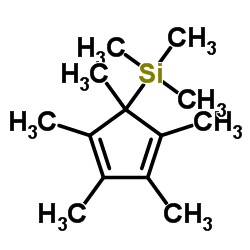
87778-95-8 |
| 文献:Jutzi, Peter; Saleske, Hartmut; Buehl, Dittmar; Grohe, Hildegard Journal of Organometallic Chemistry, 1983 , vol. 252, # 1 p. 29 - 36 |
| 上游产品 2 | |
|---|---|
| 下游产品 2 | |

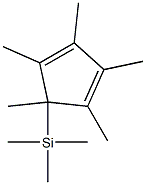
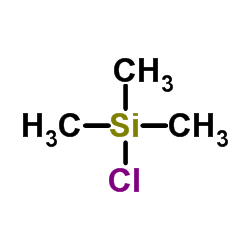
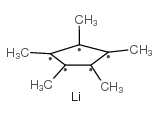
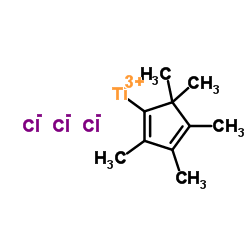
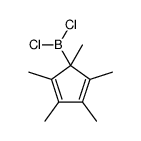





 浙公网安备 33010802013016号
浙公网安备 33010802013016号